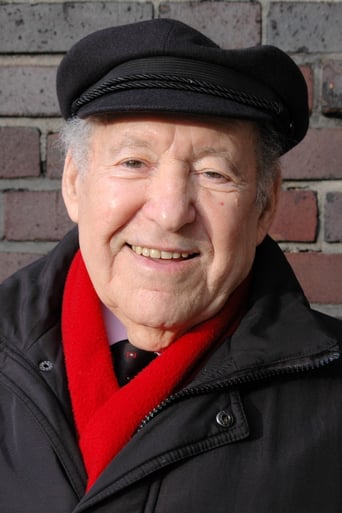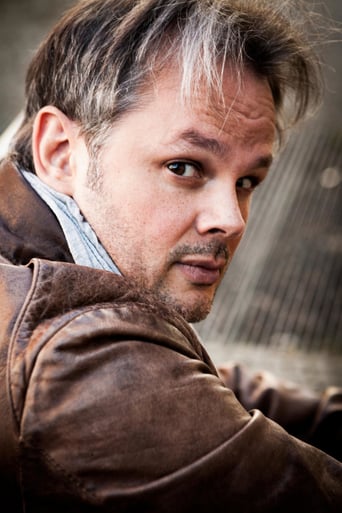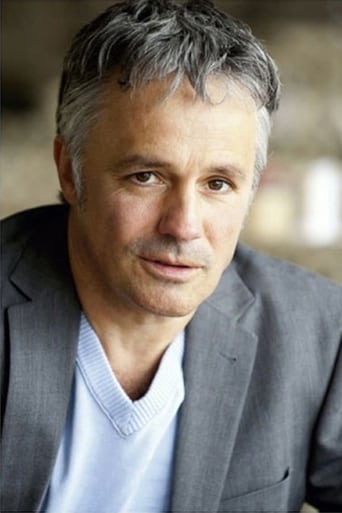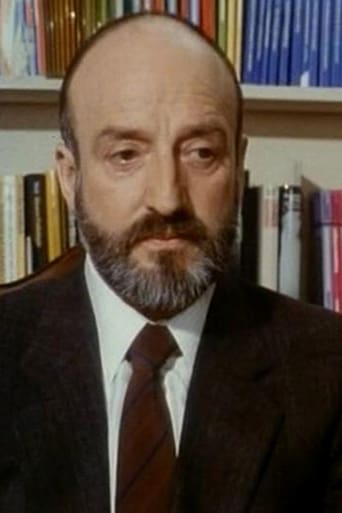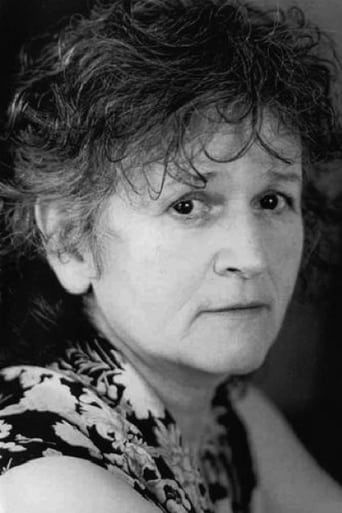Patrick Nackaert
Producing a film about Nazi Germany is easy and difficult at the same time. It is easy because many viewers are well-informed about the dramatic period in Germany's history, making the viewers' emotional involvement not too difficult. You don't name your son Adolf.It is difficult because clichés are so easy to produce. The classical black-white versions of evil Germans versus glorious Allied forces is an obvious trap.None of this in this film. It follows loosely a true story of a Jewish youngster hiding as a member of the Hitlerjugend - the Nazi youth movement. On top of his puberty, he has to face an identity crisis due to his choices to survive. Other interesting parts of the story are a homosexual German soldier, a girl overly committed to her country and a Polish boy fighting for his catholic religion in communist Poland.The way a part of difficult history books is mixed into the movie deserves to be mentioned, as well as the music. Sometimes though, overacting takes the upper hand.But the fact remains that showing the true horror of the atrocities committed during that period is not fit for film, even in this German co-production, as only very few would be able to watch it.However, it's still a very interesting film to watch.
gavin6942
A boy (Marco Hofschneider) in Nazi Germany, trying to conceal that he is Jewish, joins the Hitler Youth.The film won the Golden Globe Award for Best Foreign Language Film and was nominated for the Academy Award: Best Writing Adapted Screenplay, but lost the award to "The Silence of the Lambs". It had been expected to be nominated for Best Foreign Language Film but Germany did not submit it.One can understand why Germany was a bit embarrassed. Even today (2015), it is impossible to live down their Nazi past. No one thinks badly of Germany now, and almost everyone alive at the time is today gone. But it's something that will haunt them for a while yet. Films like this probably do not help, even if they tell a powerful story.
intelearts
Europa Europa is the remarkable true story of Salomon Perel, a young teenage Polish Jew, who passed himself off as, not merely German, but also, as a member of the highest order of the Hitler Youth, while all the time sticking to his Judaic roots, in order to survive the war. The storytelling aspects of the film gives this it drive and purpose and are excellent - based on Perel's extraordinary autobiography it avoids extrapolation and sticks to his tale.It scores very high in two vital aspects - one, the script is superb, (It was Oscar nominated) and two it was shot in German which given it subject matter was no small achievement.The film is well directed, though because of it's use of studio lighting and bright colors it has not aged as well as some of the Holocaust corpus.There are perhaps better films and books that express the absolute evil of the death camps, Weisel and Levi being two prime examples in authorship, but this is a unique perspective as it is not centered on the Shoah but rather on the unique conundrum of daring to survive by living in the heart of the Nazis' twisted dream, and one definitely worth your time - it is a truly fascinating true story with some strong adventure and drama elements.
tieman64
"The doer' is merely a fiction added to the deed. The deed is everything." - Nietzsche "We are what we pretend to be, so we must be careful about what we pretend to be." - Kurt Vonnegut Based on Salomon Perel's account of his actual experiences, director Agnieszka Holland's "Europa Europa" finds a teenage Jew, Solek, fleeing Germany and escaping to Russia in an attempt to evade the Nazis. With his sister killed and possibly also his brother, Solek weasels his way into a Russian orphanage and later a Hitler Youth camp – what safer place than the belly of the beast? - at which he learns Marxist ideology and becomes a bilingual interpreter for the Russian Army. Meanwhile, Stalin and Hitler have signed their non-aggression pact.Solek's life quickly settles into a pattern of separation, loss, opportunism, luck and adaptability. The only tell-tale sign of his Jewish identity is his circumcised penis, which he grows ashamed of and must keep hidden at all costs. The film is structured as an absurdist, seemingly free-form adventure, but its various vignettes all probe the same questions. What is the psychological consequence of a Jew pretending to be a Nazi? What makes a Jew? What makes a Nazi? What is "self" when all identities are changeable and as deceptive as uniforms?By the film's end, Solek has survived Hitler's purge by becoming a good Stalinist and a good Hitler youth. In other words, to preserve his Jewishness Solek became the antithesis of the Jew. Mirrored to this is one soldier's need to hide his homosexuality by wearing a straight, heterosexual identity, a deceptive stance itself taken by Germany, her citizens, whatever their private leanings, forced to express outward support of Hitler. In this way the film recalls Bertolucci's "The Conformist" and Wertmuller's "Seven Beauties", in which our heroes must either conform or debase/lower themselves in order to survive fascism. Indeed, everyone in the film is shown to be playing games of make believe. Solek's impersonation of a Hitler youth, for example, is no different to the Hitler youths themselves, all of whom unconsciously adopt idealized, "Aryan personas". Later, a German teacher uses Solek as an example of "perfect Aryan bone structure", not because of Solek's bone structure, but because he thinks Solek is a full blooded Aryan. Rather than a species who believes what it sees, man is one whom sees what it already believes.And so Solek eventually survives his ordeals with his original "identity" intact. His immutable "essence", he believes, if such a thing exists, is always more important that "identity", which is always dependent on the perceptions and beliefs of others. But so fragile is Solek's belief in his "essence", so uncertain is he of his own "Jewishness", that Solek's whole being begins to boil down to his phallus. He does not know what a Jew is, but he knows that they are circumcised. And so, quite arbitrarily, he is a Jew.These shifting uniforms were themselves expressed on a grand scale by Germany during the war, in which the nation was herself caught struggling to reconcile several identities: Hitler's desire to murder Jews/gypsies/undesirables/prisoners, conflicting with the need for massive amounts of slave labour, conflicting further with food shortages for feeding these slaves, conflicting even further with food shortages for feeding the populace. The struggles of Germany was a struggle to reconcile these contradictions: killing undesirables but relying on the labour of undesirables for survival. The desire for a "racially pure" society, which nevertheless relied on the import of Poles and many other foreigners to maintain the war economy and farms. Toward the tail end of the war, Hitler's subordinates had come up with elaborate mathematical calculations to soften the blow of these contradictions. It was found that few fed slaves were more productive than many unfed slaves. Therefore, specific amounts were killed, specific amounts were put to work, and food was specifically rationed out between civilians, slaves and the armed forces. The rest were arbitrarily starved. All idealogical identities, all branches of Nazisism, could therefore be met. This neither-nor/either-or flux is both the nature of all identity, and the means by which man reconciles the more base parts of his nature.The film's title, "Europa Europa", encapsulates all of Holland's points. The double "Europe" refers not only to a land mass filled with many countries and multiple national identities, but to what Holland calls both a "nostalgic representation of values, heritage, cultures and morality" and its ugly underside, "the Europe that nurtured this century's greatest evil". Concerned with how perception shapes all identity, Holland's next film, "Olivier, Olivier", likewise has a double title, and serves as a loose sequel to "Europa Europa".8.5/10 - Makes a good companion piece to Holland's "Angry Harvest", Wertmuller's "Seven Beauties", Techine's "Strayed" and Cavani's problematic, sadomasochistic "The Night Porter". See too "The Damned", "The garden of the Finzi Continis" and "The Tin Drum".

